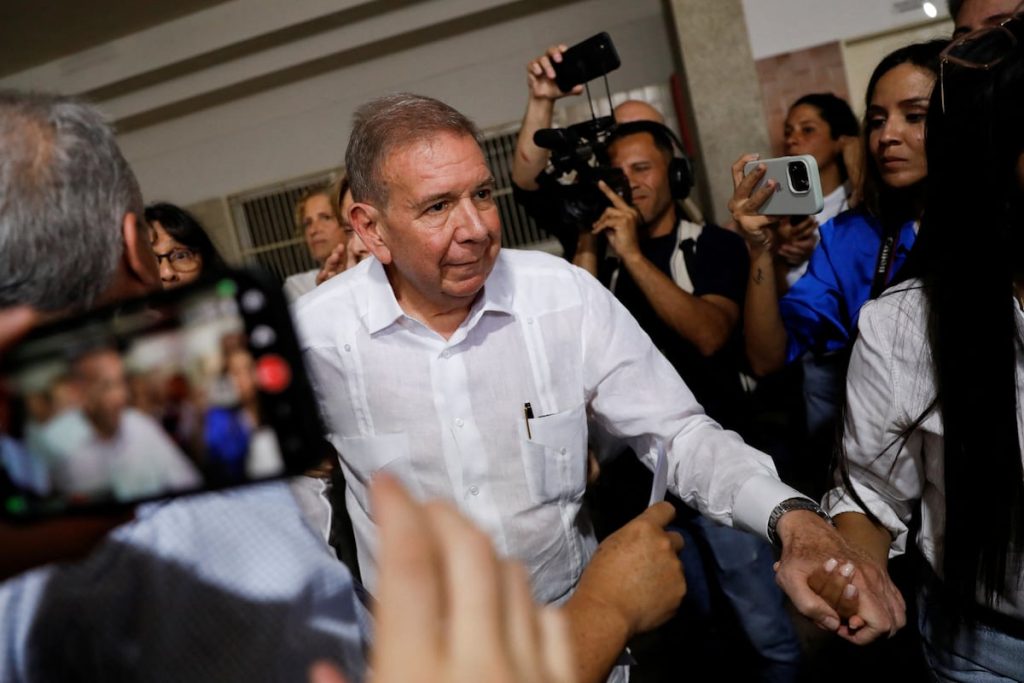The Spanish Minister of Foreign Affairs, José Manuel Albares, revealed on Monday that he offered the Venezuelan opposition candidate, Edmundo González Urrutia, to stay indefinitely as a refugee at the residence of the Spanish ambassador in Caracas, Ramón Santos. However, González ultimately decided to exile in Spain for security reasons. Albares stated that he told González he could stay at the ambassador’s residence in Venezuela for as long as he wanted. He emphasized that this offer was made to ensure González’s safety, similar to what was done with opposition leader Leopoldo López, who stayed in the residence for one and a half years before coming to Spain.
In response to criticism from the Popular Party (PP) and Vox accusing the government of helping the Maduro regime by bringing González to Spain, Albares defended the decision, stating that González’s safety was the priority. He also refuted claims by Venezuelan Vice President Delcy Rodríguez that there were political negotiations between the Spanish and Venezuelan governments regarding González’s departure. Albares clarified that the only contacts made were operational, to arrange for González’s safe exit from Venezuela without any political concessions from either side.
González had been a guest at the Dutch Embassy in Caracas since July 29, the day after the elections, and later moved to the Spanish ambassador’s residence. Albares confirmed that his discussions on the matter were with González directly, ensuring that he wanted to seek exile in Spain. According to Spanish law, González has a month from his arrival in Spain to apply for asylum, a process that Albares stated would be granted. He emphasized the humanitarian nature of the situation, pointing out that González, a 76-year-old with serious charges against him in Venezuela, needed protection.
In an audio message following his arrival in Madrid, González described facing pressure and threats to prevent him from leaving Venezuela. He expressed hope for continuing the struggle for democracy and freedom in Venezuela. González’s lawyer, José Vicente Haro, explained that González initially intended to stay in Caracas but was forced to change his plans due to escalating threats. Ultimately, his safety was at risk, leading to the decision to seek asylum in Spain. Haro emphasized the human aspect of the decision, highlighting the danger González faced and the need to protect his life.
The decision for González to seek refuge in Spain was driven by a combination of political persecution and threats to his safety. Despite initial intentions to remain in Venezuela, the escalating risks led to the conclusion that exile was the safest option. Albares assured that González’s rights, including freedom of expression and assembly, will be respected in Spain. The case highlights the complex political situation in Venezuela and the challenges faced by opposition figures in the country.


